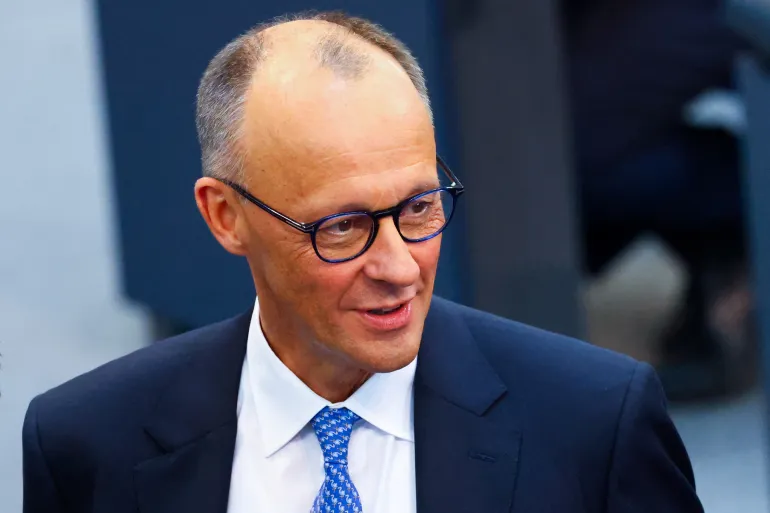Friedrich Merz Elected German Chancellor in Historic Second-Round Vote
On May 6, 2025, Friedrich Merz, leader of Germany’s center-right Christian Democratic Union (CDU), was elected as the country’s chancellor after an unprecedented second round of parliamentary voting. The initial vote earlier that day saw Merz fall short of the required majority, marking the first time in post-war German history that a chancellor candidate failed to secure confirmation in the first round.
A Surprising Setback
Despite his coalition with the Christian Social Union (CSU) and the center-left Social Democratic Party (SPD) holding 328 seats in the Bundestag, Merz received only 310 votes in the first round, six short of the 316 needed for a majority. This unexpected outcome highlighted internal dissent within the coalition and raised questions about its cohesion.
Second Round Success
Following intensive negotiations and behind-the-scenes discussions, a second vote was held later that day. Merz secured 325 votes, surpassing the majority threshold and paving the way for his formal appointment by President Frank-Walter Steinmeier. He was subsequently sworn in as Germany’s 10th chancellor since World War II.
Challenges Ahead
Merz’s ascent to the chancellorship comes at a time of significant economic and political challenges. Germany’s economy faces stagnation, and Merz has proposed a €1 trillion investment plan aimed at infrastructure and defense modernization. However, this plan has drawn criticism from within his own CDU/CSU bloc, reflecting concerns about increased debt and fiscal responsibility.
Additionally, Merz’s previous cooperation with the far-right Alternative for Germany (AfD) on migration issues has unsettled his SPD allies, further complicating the coalition dynamics.
International Reactions
International leaders have responded positively to Merz’s election. French President Emmanuel Macron and Ukrainian President Volodymyr Zelenskyy expressed optimism about strengthened Franco-German relations and increased German leadership in European affairs.
Looking Forward
Merz’s immediate priorities include revitalizing Germany’s economy, addressing internal coalition tensions, and navigating complex international relationships, particularly in light of ongoing geopolitical tensions and potential trade disputes. His leadership will be closely watched as Germany seeks to assert its role on the global stage amidst these challenges.
Source; Al Jazeera



